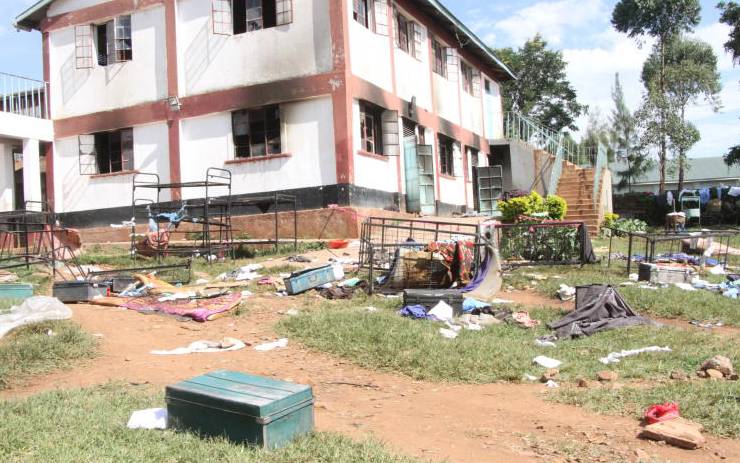×
The Standard e-Paper
Join Thousands Daily

Students at St Pius Uriri Boys High School are alleged to have burnt down their dormitory after they were denied chance to watch AFCON (Harambee star Vs Algeria) match on June 24, 2019. [Caleb KIngwara/Standard]
Spies may soon be deployed in secondary schools to help forestall student unrest and other forms of crime if recommendations by a House committee are adopted.